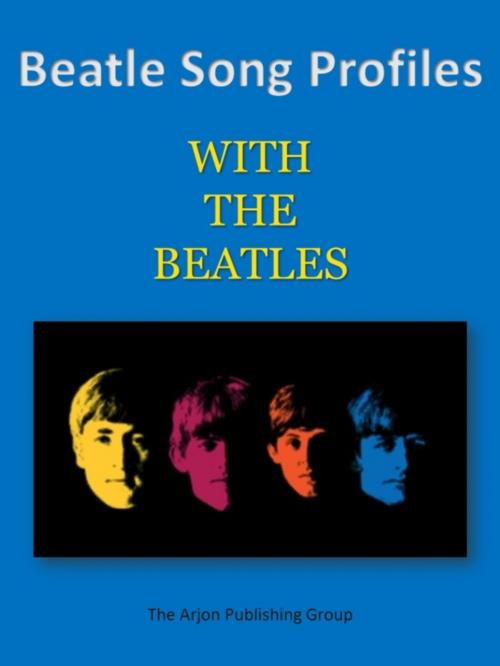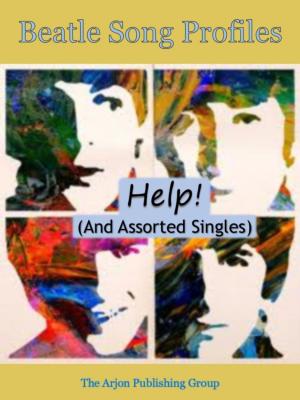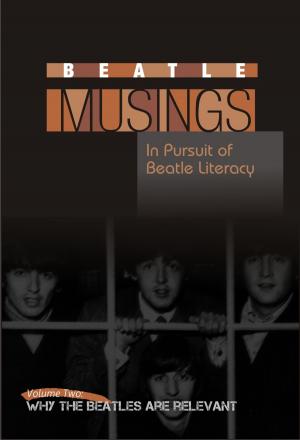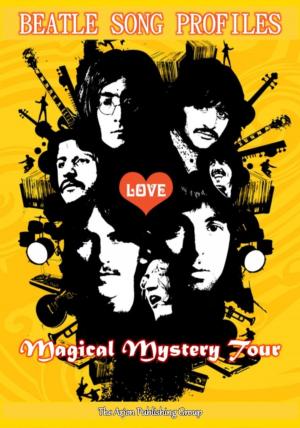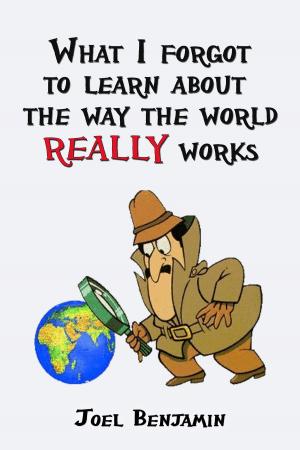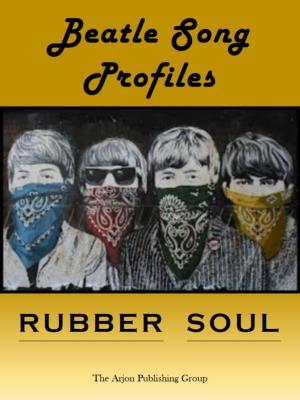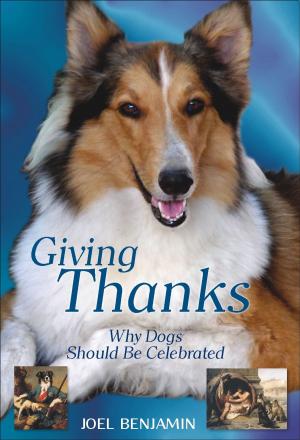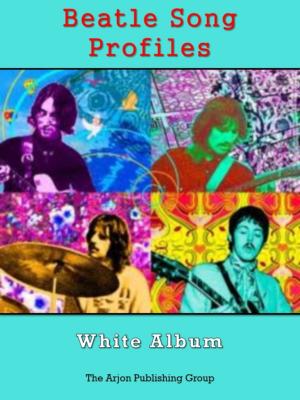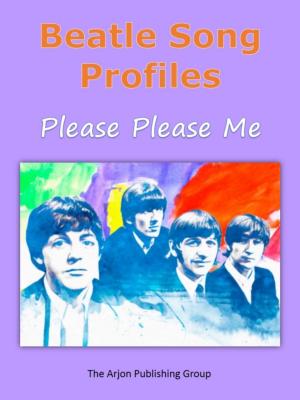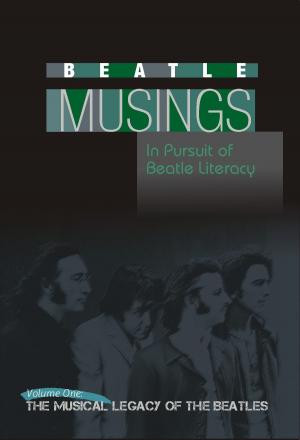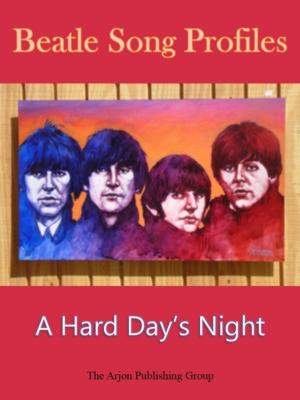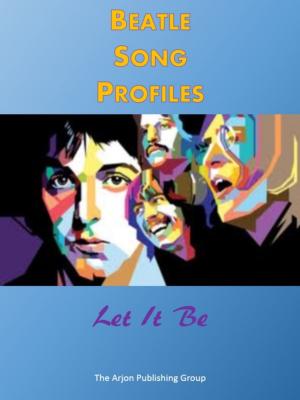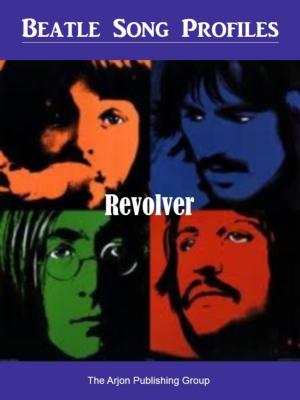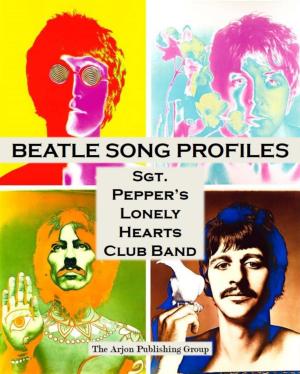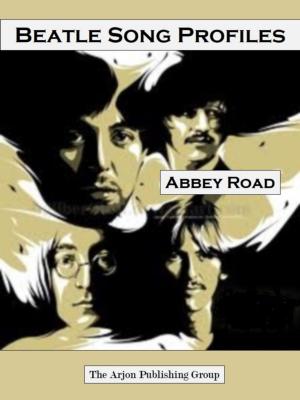Beatle Song Profiles: With The Beatles
Nonfiction, Entertainment, Music, Business & Technical, Songwriting, Pop & Rock, Popular, Music Styles| Author: | Joel Benjamin | ISBN: | 1230000147716 |
| Publisher: | Arjon Publishing | Publication: | August 22, 2012 |
| Imprint: | Language: | English |
| Author: | Joel Benjamin |
| ISBN: | 1230000147716 |
| Publisher: | Arjon Publishing |
| Publication: | August 22, 2012 |
| Imprint: | |
| Language: | English |
Each of the 14 songs from With The Beatles and 4 assorted singles are “profiled” in this volume of Beatle Song Profiles.
Beatle Song Profiles are concise commentaries on every Beatle song. The song profiles describe the song’s origins and inspiration, what The Beatles themselves said about it, what was unique about the music and/or production of the arrangement or vocals, and the deeper meaning of the lyrics.
Beatle Song Profiles is a unique educational tool to enable readers to learn about every song on all 12 albums The Beatles recorded.
Sample song profile from With The Beatles
It Won’t Be Long
Lennon was not happy about the result of the recording of It Won’t Be Long.
He commented:
“It was my attempt to write another single…but it never quite made it.”
A few years later he would say the song was the beginning of a wider audience for Beatles' music than the youthful throngs that had fervently followed them from the Liverpool clubbing days.
He added:
“The basic appeal of the Beatles was not their intelligence. It was their music. It was only after some guy in The London Times said there were aeolian cadences in ‘It Won't Be Long’ that the middle classes started listening to it - because somebody put a tag on it.”
McCartney compared the juxtaposition of 'be long' and “belong” to the wordplay that influenced “Please Please Me.”
He writes in his autobiography:
“I was doing literature at school, so I was interested in plays on words and onomatopoeia. John didn't do literature but he was quite well read, so he was interested in that kind of thing. We both liked to try and get a bit of double meaning in, so that was the high spot of writing that particular song. John mainly sang it so I expect that it was his original idea but we both sat down and wrote it together.”
Over the years it was assumed that this was an “early Paul song”- but it wasn’t. He definitely did not write it or sing lead vocal. The lyrics have all the John trademark themes of abandonment, rejection and self-pity that were prevalent in his contributions to the Beatles first few albums.
The track is indicative of the Beatle’s early philosophy of recording which was to pack it tight without a single dull second, of “needle-time.” It is rich in detail and elliptical in form as George Harrison picks out a series of descending guitar figures, Ringo’s backbeat and John’s rhythm guitar skyrocket the track forward with a bolt of brute force. The word "yeah" is repeated 56 times!
Says Ken Womack:
“The speaker longs to return to the reassuring company of his beloved and feels a stronger urgency, a lonely sense of disconnectedness in his lover’s absence. The speaker can scarcely imagine risking the pure bliss of his current relationship for a dalliance with another- “I’ll be good like I know I should”- for the simple reason that the utopian dream of their romantic love might come to an end. Romantic love exists as an all-purpose, all-consuming antidote for the intervals and pauses that prevent us from experiencing life on our own terms- and, more significantly without the frustration of postponing the satiation of our desires.”
Each of the 14 songs from With The Beatles and 4 assorted singles are “profiled” in this volume of Beatle Song Profiles.
Beatle Song Profiles are concise commentaries on every Beatle song. The song profiles describe the song’s origins and inspiration, what The Beatles themselves said about it, what was unique about the music and/or production of the arrangement or vocals, and the deeper meaning of the lyrics.
Beatle Song Profiles is a unique educational tool to enable readers to learn about every song on all 12 albums The Beatles recorded.
Sample song profile from With The Beatles
It Won’t Be Long
Lennon was not happy about the result of the recording of It Won’t Be Long.
He commented:
“It was my attempt to write another single…but it never quite made it.”
A few years later he would say the song was the beginning of a wider audience for Beatles' music than the youthful throngs that had fervently followed them from the Liverpool clubbing days.
He added:
“The basic appeal of the Beatles was not their intelligence. It was their music. It was only after some guy in The London Times said there were aeolian cadences in ‘It Won't Be Long’ that the middle classes started listening to it - because somebody put a tag on it.”
McCartney compared the juxtaposition of 'be long' and “belong” to the wordplay that influenced “Please Please Me.”
He writes in his autobiography:
“I was doing literature at school, so I was interested in plays on words and onomatopoeia. John didn't do literature but he was quite well read, so he was interested in that kind of thing. We both liked to try and get a bit of double meaning in, so that was the high spot of writing that particular song. John mainly sang it so I expect that it was his original idea but we both sat down and wrote it together.”
Over the years it was assumed that this was an “early Paul song”- but it wasn’t. He definitely did not write it or sing lead vocal. The lyrics have all the John trademark themes of abandonment, rejection and self-pity that were prevalent in his contributions to the Beatles first few albums.
The track is indicative of the Beatle’s early philosophy of recording which was to pack it tight without a single dull second, of “needle-time.” It is rich in detail and elliptical in form as George Harrison picks out a series of descending guitar figures, Ringo’s backbeat and John’s rhythm guitar skyrocket the track forward with a bolt of brute force. The word "yeah" is repeated 56 times!
Says Ken Womack:
“The speaker longs to return to the reassuring company of his beloved and feels a stronger urgency, a lonely sense of disconnectedness in his lover’s absence. The speaker can scarcely imagine risking the pure bliss of his current relationship for a dalliance with another- “I’ll be good like I know I should”- for the simple reason that the utopian dream of their romantic love might come to an end. Romantic love exists as an all-purpose, all-consuming antidote for the intervals and pauses that prevent us from experiencing life on our own terms- and, more significantly without the frustration of postponing the satiation of our desires.”
